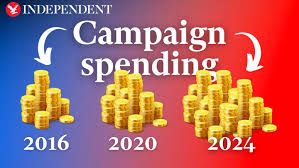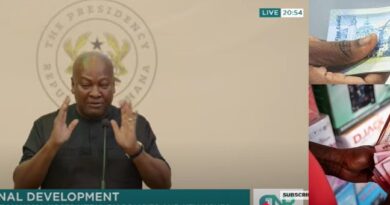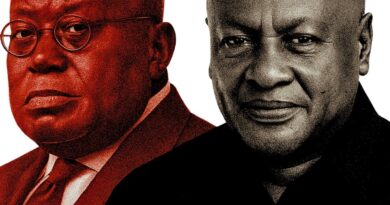Cost of running for office turns democracy into pay-to-play

Running for elected office in Ghana now demands staggering financial resources. That harsh truth becomes more obvious with every internal party contest. Still, no political figure has publicly disclosed how much it takes to win or lose.
While party-level roles demand money, national contests multiply that cost dramatically. A recent CDD-Ghana study pegged the cost of winning the presidency at $150 million. A parliamentary seat now demands over $693,000.
Few candidates reveal what they spend, but the implications grow clearer. This issue returned to headlines after the New Patriotic Party released its filing requirements for the 2026 presidential primaries.
Hopefuls must pay GH₵100,000 to apply, GH₵500,000 to file, and an additional development levy still under wraps. If that final fee hits GH₵100,000, total filing costs will hit GH₵700,000. Add a conservative GH₵300,000 for travel, outreach, and logistics, and the real bill hits GH₵1,000,000.
Naturally, this sparked intense debate. One side claims candidates should show resourcefulness. After all, raising campaign funds mirrors the grind of running a national election. If you can’t raise this money, why bother running a country?
Yet the other camp raises serious concerns. They argue that high costs create barriers. Democracy then becomes a competition of wallets, not of merit. The richest may not always be the best—but they’re most likely to win.
This raises urgent questions. Does our democracy now reward access to money more than ideas or integrity? Do we now value capital over competence?
The real danger lies in what this system silently endorses. It invites shadowy financing, favors moneyed elites, and opens doors for corruption. Unfortunately, Ghana lacks transparent political financing laws to keep such influences in check.
Campaign finance remains murky. Candidates rarely declare sources, and rules hardly enforce disclosure. As costs rise, this murkiness becomes a threat—not just to fairness but to trust in the system.
Supporters of this costly system argue some candidates fund themselves. But how many have personal fortunes strong enough to carry them through national campaigns?
Others say wealthy friends pitch in. Even so, political financing in Ghana often works like investment. Support today often expects favors tomorrow. That tradeoff chips away at public accountability.
Allegations of corruption rarely surprise anyone now. Why? Because many suspect candidates owe powerful backers far more than they owe the public.
While NPP has published its fees, the NDC’s 2028 contest remains unpriced. But judging by trends, we shouldn’t expect anything below GH₵400,000—the 2020 benchmark.
This unhealthy escalation demands immediate reform. Ghana must urgently revisit how political campaigns are financed. Without this, democracy risks becoming transactional, not transformational.
If running for office costs a million cedis, only the rich or the indebted can run. That leaves out passionate, capable, and honest citizens who lack big money but carry big ideas.
Democracy thrives when every citizen believes they can lead—not just those who can afford to.




